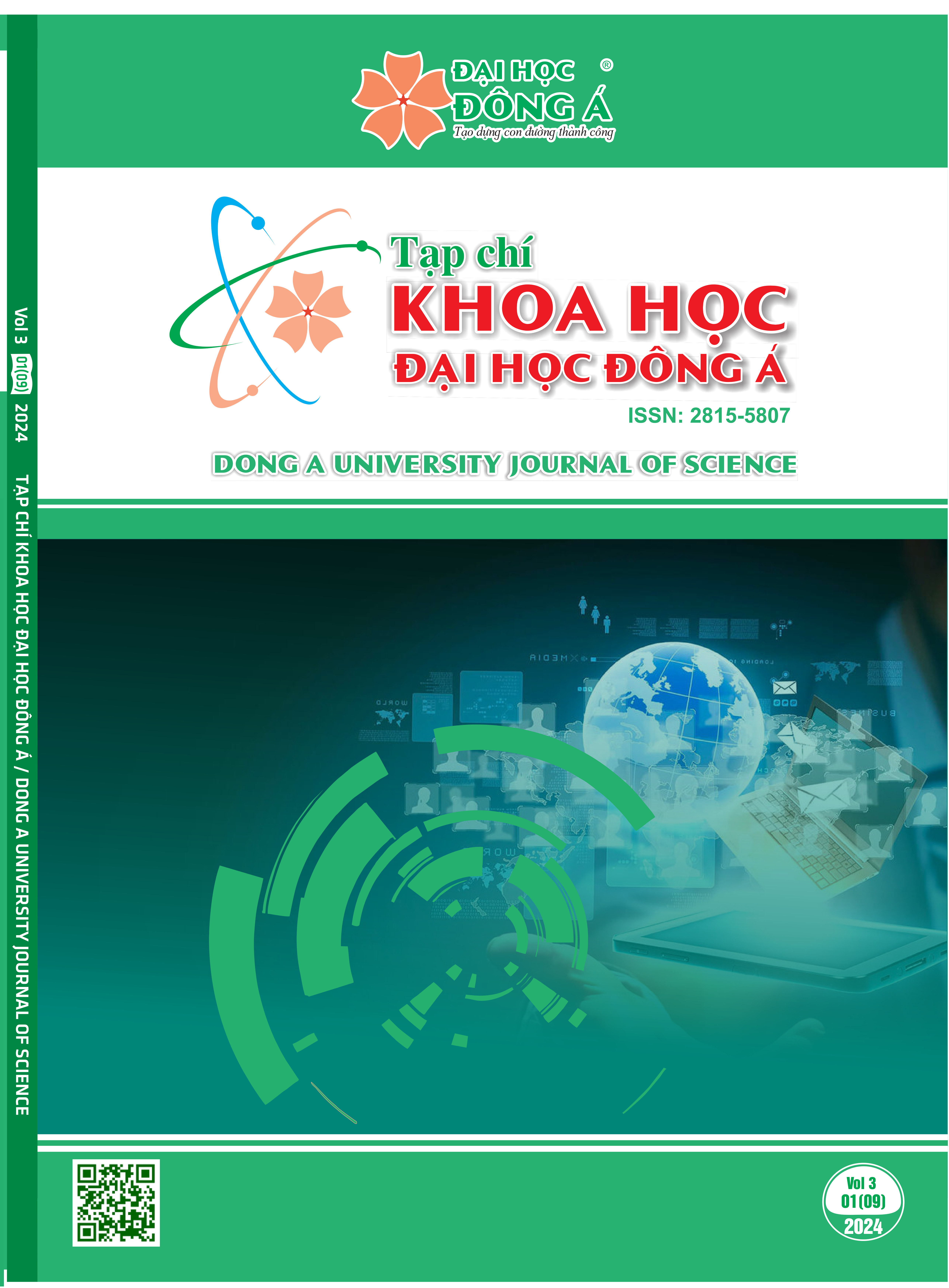Nghiên cứu các yếu tố ảnh hưởng đến sự hợp tác thành công và bền vững trong chuỗi cung ứng du lịch Việt Nam
Nội dung chính của bài viết
Tóm tắt
Mục đích chính của bài báo là nhằm nghiên cứu mối quan hệ giữa các yếu tố ảnh hưởng đến sự hợp tác thành công và bền vững trong chuỗi cung ứng du lịch, bao gồm: niềm tin, sự cam kết, truyền thông và chia sẻ giá trị. Để đạt được điều này, chúng tôi đã xây dựng một bảng hỏi và phân phối đến đại diện quản lý của các doanh nghiệp theo phương pháp ngẫu nhiên thuận tiện. Dữ liệu thu về gồm 427 phiếu trả lời đạt yêu, phần mềm SmartPLS3 được sử dụng để kiểm định và đánh giá chất lượng mô hình đo lường và mô hình cấu trúc tuyến tính SEM. Kết quả nghiên cứu cho thấy rằng, tất cả giả thuyết nghiên cứu đặt ra được chấp nhận với mức ý nghĩa thống kê P value < 0,05. Nghĩa là các yếu tố niềm tin, sự cam kết, truyền thông và chia sẻ giá trị có ảnh hưởng đáng kể trong việc tạo nên sự hợp tác thành công và bền vững trong chuỗi cung ứng du lịch. Trong đó, niềm tin là yếu tố đóng vai trò quan trọng nhất và tác động mạnh nhất đến mối quan hệ hợp tác này. Nghiên cứu cũng góp phần mở rộng thêm hệ thống lý luận về chủ đề nghiên cứu, đồng thời cung cấp thêm góc nhìn về sự hợp tác thành công trong chuỗi cung ứng du lịch Việt Nam.
Chi tiết bài viết
Từ khóa
chuỗi cung ứng du lịch, sự hợp tác, niềm tin, chia sẻ giá trị, truyền thông
Tài liệu tham khảo
Anderson, J. C., & Narus, J. A. (1984). A model of the distributor's perspective of distributor-manufacturer working relationships. Journal of marketing, 48(4), 62-74.
Bichou, K., & Gray, R. (2004). A logistics and supply chain management approach to port performance measurement. Maritime Policy & Management, 31(1), 47-67.
Cohen, J. (1998). Statistical Power Analysis for the Behavioral Sciences (Second Edition ed.). Lawrence Erlbaum Associates, Publishers.
Costa, F., Denis Granja, A., Fregola, A., Picchi, F., & Portioli Staudacher, A. (2019). Understanding relative importance of barriers to improving the customer-supplier relationship within construction supply chains using DEMATEL technique. Journal of Management in Engineering, 35(3), 04019002.
Chen, J. V., Yen, D. C., Rajkumar, T., & Tomochko, N. A. (2011). The antecedent factors on trust and commitment in supply chain relationships. Computer Standards & Interfaces, 33(3), 262-270.
Datta, P. P., & Christopher, M. G. (2011). Information sharing and coordination mechanisms for managing uncertainty in supply chains: a simulation study. International Journal of Production Research, 49(3), 765-803.
Deepen, J. M. (2007). Logistics outsourcing relationships: measurement, antecedents, and effects of logistics outsourcing performance. Springer Science & Business Media.
DeVellis, R. F. (2012). Scale development: Theory and applications. Sage Publications. http://www.sciepub.com/reference/181517
Hair, J. F., Hult, G. T. M., Ringle, C. M., Sarstedt, M., & Thiele, K. O. (2017). Mirror, mirror on the wall: a comparative evaluation of composite-based structural equation modeling methods. Journal of the academy of marketing science, 45, 616-632.
Hair, J. F., Ringle, C. M., & Sarstedt, M. (2013). Partial least squares structural equation modeling: Rigorous applications, better results and higher acceptance. Long range planning, 46(1-2), 1-12.
Hair, J. F., Risher, J. J., Sarstedt, M., & Ringle, C. M. (2019). When to use and how to report the results of PLS-SEM. European Business Review, 31(1), 2-24.
Henseler, J., Ringle, C. M., & Sarstedt, M. (2015). A new criterion for assessing discriminant validity in variance-based structural equation modeling. Journal of the academy of marketing science, 43, 115-135.
Höck, M., & Ringle, C. (2010). Local strategic networks in the software industry: An empirical analysis of the value continuum. International Journal of Knowledge Management Studies - Int J Knowl Manag Stud, 4. https://doi.org/10.1504/IJKMS.2010.030789
Huang, Y., Song, H., Huang, G. Q., & Lou, J. (2012). A comparative study of tourism supply chains with quantity competition. Journal of Travel research, 51(6), 717-729.
Kač, S. M., Mrnjavac, E., & Slavić, N. (2019). RELATIONSHIP FACTORS IN TOURISM SUPPLY CHAIN MANAGEMENT IN SLOVENIA AND CROATIA. Tourism in Southern and Eastern Europe... 5, 475-487.
Li, Q., & Tang, F. (2009). An integrated model and coordination mechanism of tourism supply chain management. 2009 International Conference on Test and Measurement,
Mlaker Kac, S., Gorenak, I., & Potocan, V. (2016). The influence of trust on collaborative relationships in supply chains.
Moorman, C., Zaltman, G., & Deshpande, R. (1992). Relationships between providers and users of market research: The dynamics of trust within and between organizations. Journal of Marketing Research, 29(3), 314-328.
Morgan, R. M., & Hunt, S. D. (1994). The commitment-trust theory of relationship marketing. Journal of marketing, 58(3), 20-38.
Piboonrungroj, P., & Disney, S. M. (2009). Tourism supply chains: a conceptual framework. Tourism III: Issues in PhD Research, 132, 132-149.
Shang, Y., Mehmood, K., Iftikhar, Y., Aziz, A., Tao, X., & Shi, L. (2021). Energizing intention to visit rural destinations: how social media disposition and social media use boost tourism through information publicity. Frontiers in psychology, 12, 782461.
Song, H. (2012). Tourism supply chain management. Routledge.
Svensson, G. (2005). Mutual and interactive trust in business dyads: condition and process. European Business Review, 17(5), 411-427.
Tapper, R., & Font, X. (2004). Tourism supply chains. Report of a desk research project for the travel foundation, 23.
Wang, J.-S. (2009). Trust and relationship commitment between direct selling distributors and customers. African Journal of Business Management, 3(12), 862.
Zhang, X., Song, H., & Huang, G. Q. (2009). Tourism supply chain management: A new research agenda. Tourism management, 30(3), 345-358.


